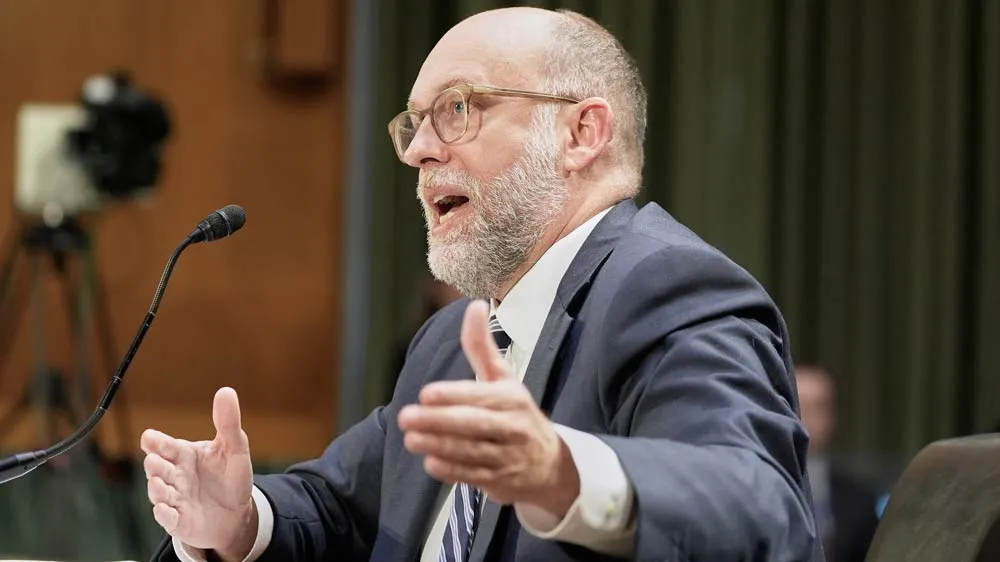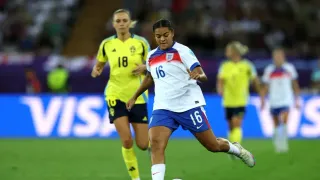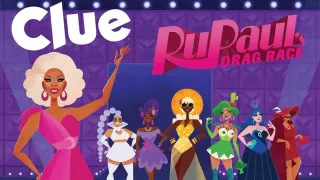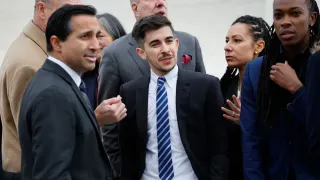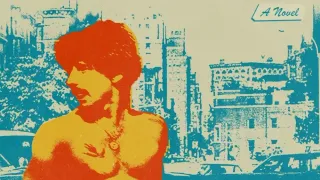June 21, 2015
Front and Center With Glennda Testone
Winnie McCroy READ TIME: 12 MIN.
For the past six years, Glennda Testone has served as executive director of the New York City LGBT Community Center -- the first-ever female to hold that post. Through a long history of work in the community, Testone has managed to empower women, protect our youth, help build families, fight against HIV/AIDS and work toward a better future for trans people. She's also overseen an amazing top-to-bottom $9.1 million renovation of the Center.
As Pride approaches, EDGE sat down with Testone to ask her about the highs and lows of her work, coming out and settling down with her longtime partner, and what the future holds for our community.
EDGE: You began your career in activism as a "straight ally" working at GLAAD. What do you remember about your time there?
Testone: I remember my time at GLAAD very fondly; I was there from 2002 to 2006. I just learned so much professionally. It was an amazing team, and I met some of the people who are most important in my life today. I just remember doing really important work with really smart, passionate people, and it felt great.
EDGE: During that time, you convinced The New York Times to print same-sex marriage announcements. Why is that important, and why is marriage important for our community?
Testone: Probably one of the highlights of my career was helping to convince The New York Times to print same-sex wedding announcements. The reason it was so important is that The New York Times is such a leader in this industry, that we could leverage that to urge other papers to do the same. We said to them, "This is something that's happening, so why choose not to cover it?" I just always thought of my parents reading the paper every day, and I wanted them to see their neighbors -- both straight and gay -- celebrating their relationships equally. And from a social-justice standpoint, I want to bring gay couples and their love and relationships into people's houses. To get our stories and lives included in that venue seemed monumental, and I will always be really proud to be part of it.
EDGE: You also worked at the Women's Media Center, helping forward-thinking women find their voice. Why is that so important?
Testone: We live in a world where there remains gender inequality. We still see barriers for women in the workplace. In a recent panel about women entrepreneurs, we heard that LGBTs make less than men, LGB women make less than straight women, LB women make more than trans women, and trans women make less than everybody. There is a lot of work to be done, and I feel passionately about helping women counterbalance the messages that their voices and experiences are not as important.
EDGE: You're the first-ever female director of the LGBT Center in New York City. How does it feel to trail blaze in this way?
Testone: It's pretty awesome! It always gets a clap at the Women's Event. I had a young woman work her way through the crowd and come up to me last night, and she was so excited that I'm a woman and I'm leading the Center. She said, "I want to do that someday," so we chatted about what that entails.
EDGE: You've been executive director of the Center since 2009. What's your greatest achievement in those five years? What are you most looking forward to in the next five years?
Testone: I am really proud of the renovation. This is so much more than a building, but to be able to take the foundation others had staked a claim to, and build on it, and make it even better, and help it speak to today's generation and future is something I'm really proud of. It has to be something that appeals to the folks who have been coming in every day for 30 years, and the people who walk in for the first time, to be like "Wow, what a beautiful building!" That's a hard balance to strike, but I think we were successful.
I came on in 2009, when we were just starting to come out of the economic downturn, and the fact that we built a stable financial base and were able to increase fundraising in all areas is really exciting. We now have a strategic reserve fund of a couple million dollars, which we didn't have when I came in.
But the top things on my to-do list include launching our innovative trans program we've created, called T:FIRE [Transgender and Gender Non-Conforming: Find, Inform, Resource and Empower]. We have been doing work with the trans community in the Gender Identity Project for 26 years, and I'm really proud of that work. But T:Fire is really about empowering trans folks to help each other and help themselves. The focus is on how to make sure they can support themselves -- and not through sex work, if that's not what they want to do.
So it's workforce readiness and training for agencies and organizations that support trans people so they can live their lives and have the opportunities we all have. When we ask "What do you need?" they want jobs. To try and build that new life requires significant support and resources, so we want to provide that and help people craft the lives they want to live. I'm really excited and passionate about that. I'm trying to fundraise for it now and can't wait to implement it.
EDGE: What are some of the Center's most cherished programs, in your eyes?
Testone: You're asking me to pick a favorite child when you have to love them all the same! (Laughs) The Families Program is amazing and continues doing great things. It's hard to imagine us not needing that, because although we can find ways to make building a family equal for LGBT folks, it's different medically. Two other areas I feel strongly about are healing the trans community and youth.
We're in a place where visibility of those two issues -- LGBT youth and trans folks -- has increased tremendously, without necessarily increasing the resources and support when folks do come out. So we see a lot of young people whose families reject them and they find themselves on the street, maybe contemplating suicide. So the programs we do focus on making LGBT young people feel good about themselves and create a life that is self-sustaining, so they can go to school or a job and support themselves if they have to. That's critical work.
EDGE: Back in the day, lesbians used to be divided into butch and femme. You are very feminine in appearance, and I recall reading an early interview that said you don't like it when people make assumptions about you based on that. Do you find yourself having to come out?
Testone: I think because of my job, less so. It happens on airplanes with strangers, or with taxi drivers. They don't quite know what to say. But there's still sexism in the world. I hear gossip about me being a lipstick lesbian, and it's dismissive. Because I wear heels and lipstick I should be taken less seriously? It feels wrong -- why should that matter? I've also seen the flipside, when people say, "Oh, you're such a great representative for the Center" -- but I hear it as butch bias almost.
EDGE: Because you're foxy?
Testone: Yeah, and I don't like it! The LGBT community works so hard to get people to accept us, whatever our gender expression or sexual orientation. So for us to judge each other in that way... I date butch women; have you seen my girlfriend? So I always just use it, like, "Yes, I'll talk to you about my genderqueer butch girlfriend, and why you should support T:FIRE."
EDGE: Transgender women, especially women of color, are highly impacted by HIV/AIDS. Can we do more to help them conquer the stigma of HIV, poverty and racism?
Testone: There's a lot of work to be done. We can't do it alone; it requires allies to stand up and do something. Education in our community needs to happen, and as a femme-presenting woman and a trans ally, it's my responsibility to never remain silent when these issues come up. A lot of funding for the trans community focuses on legislation, which we need, or violence trans folks face, or health concerns. When we talk to trans women and ask what they're worried about, certainly violence comes up -- but, literally, they just want a job, a way to support themselves. We need to find ways to support and empower trans people of color to be leaders in the movement. We need to elevate folks and give them the tools to do amazing things. We need to see trans folks as autonomous -- not just as an HIV risk or a potential victim of violence.
EDGE: I know HIV is a big concern for you. You donate your energy and time each year to the Cycle for the Cause bike ride from Boston to NYC. Why is that important to you? Share your thoughts on how HIV/AIDS still impacts our community.
Testone: I do feel strongly about this. I come to the ride every year and the people I've been able to meet are incredible, like this amazing couple of gay men, one HIV-positive and one HIV-negative. Rick's living with HIV for the rest of his life, unless we find cure. He can't choose not to do that. But I can choose to get on a bike and ride as much and raise as much as I can, because every single year folks I know seroconvert. That's not going down. We need bold action, and to talk about this, and not think of it as a terrible thing that happened in the '80s -- it's still happening.
EDGE: You and your partner, Jama Shelton, have been together for six years. Got any plans to get married? What would that look like?
Testone: Did my mom put you up to that question? (Laughs) I do see that in our future. I think that Jama and I are in love, and I see us together for the foreseeable future. The biggest challenge is, when do you find the time to plan something like that? She's got a huge job; I have a huge job. Even when I was straight, I was never like, "My wedding will be like this." It's intimidating when you think of it, that one most important day... it overwhelms me.
EDGE: You also noted that you recently bought a house in Asbury Park. Is that the next big gay area?
Testone: I hope so! We love it in Asbury; if we could just move it 30 minutes closer to the city, we'd move there full-time. I'd like to see more women there. We've only been there a year, and only weekends and summer, but we see mostly men.
EDGE: What does Pride mean to you? How will you celebrate it this year?
Testone: I always do the march with the Center, and the coolest thing for me is seeing people at their first Pride. We have a lot of LGBT immigrants who don't have Pride marches in their home countries -- who would have faced terrible consequences for coming out and marching down the street -- and a lot of young folks who just came out come to their first Pride. I remember mine, and it's a rite of passage and ritual for our community.
I think that's great, but for me personally, it's about remembering how far we've come. We have an archive here and images of past Prides, where there were only 50 people holding a sign. And just look at it now -- who ever would have imagined it would become so big and accepted, with the whole city coming out and supporting it, and a Pride in every borough? It is cool to have a point every year to look back and take stock.
EDGE: In closing, if you could share one piece of advice with your constituents in NYC as we round into summer, what would that be?
Testone: We had a terrible winter, so I guess I'd say that I hope folks will relax, recharge and enjoy the sun, because you know it's not going to last. And then come back in the fall ready to stand up and fight for the folks who are most vulnerable in our community. Marriage equality wasn't the last thing. We're not done yet!
Winnie McCroy is the Women on the EDGE Editor, HIV/Health Editor, and Assistant Entertainment Editor for EDGE Media Network, handling all women's news, HIV health stories and theater reviews throughout the U.S. She has contributed to other publications, including The Village Voice, Gay City News, Chelsea Now and The Advocate, and lives in Brooklyn, New York.
